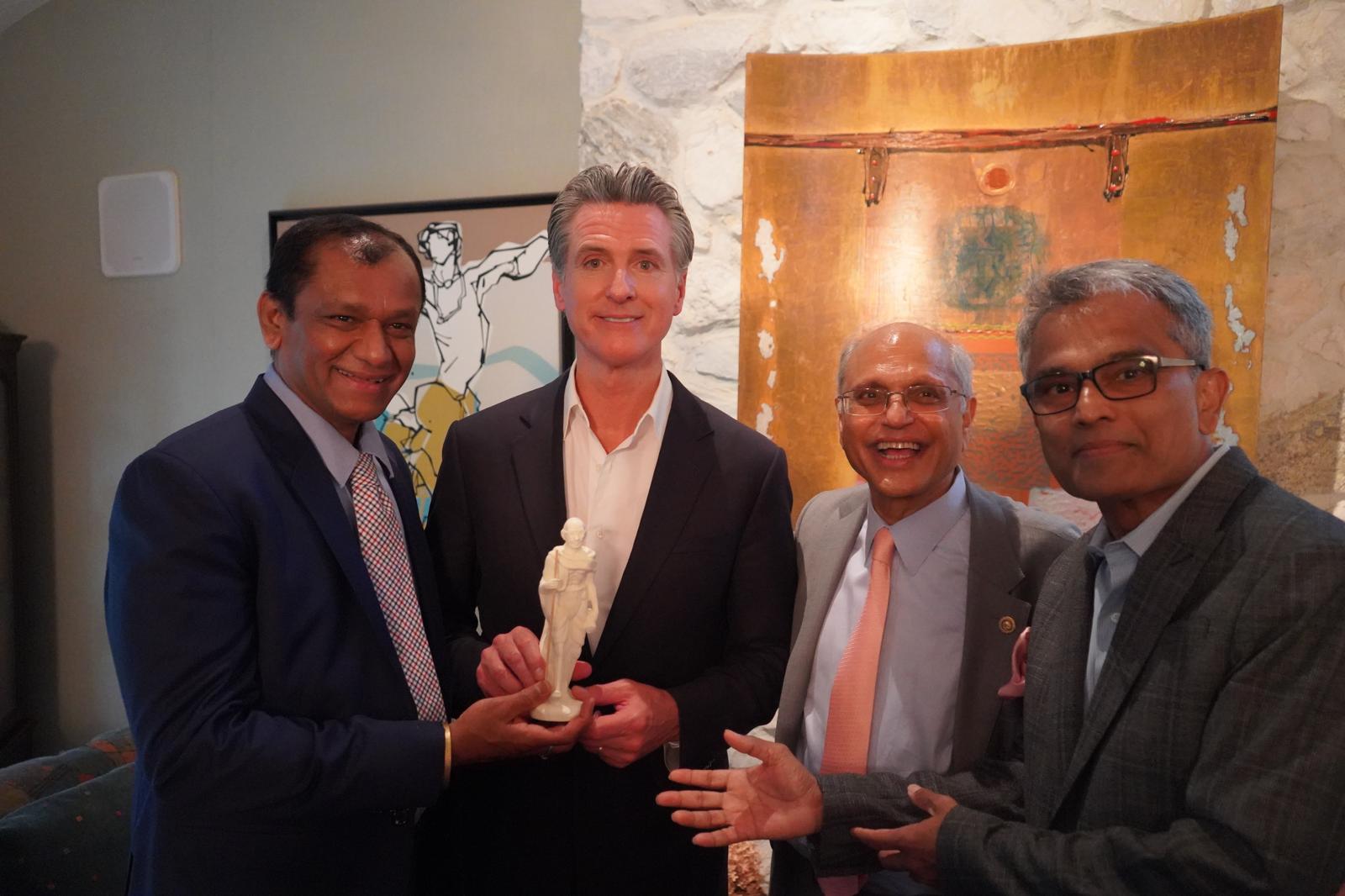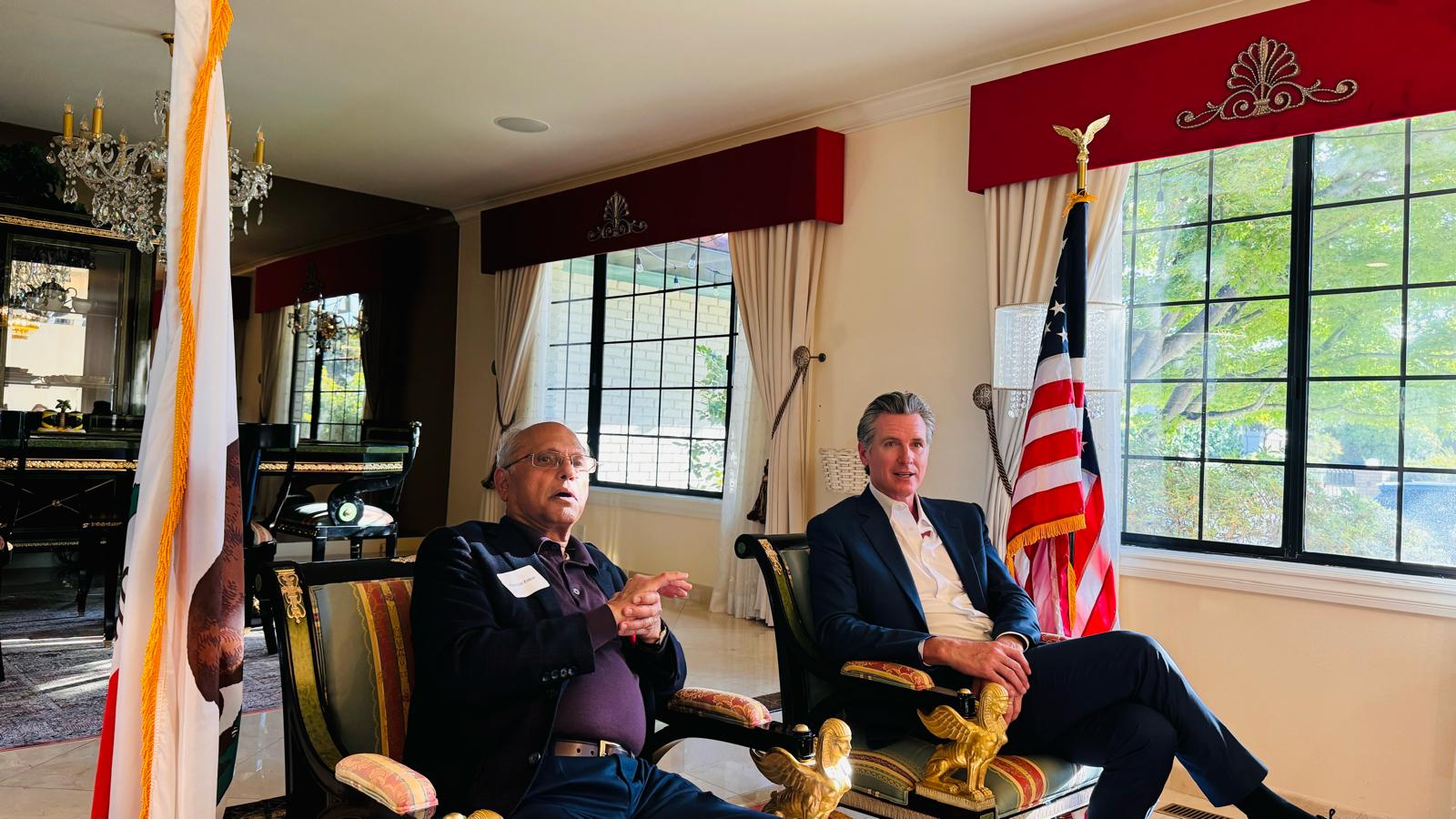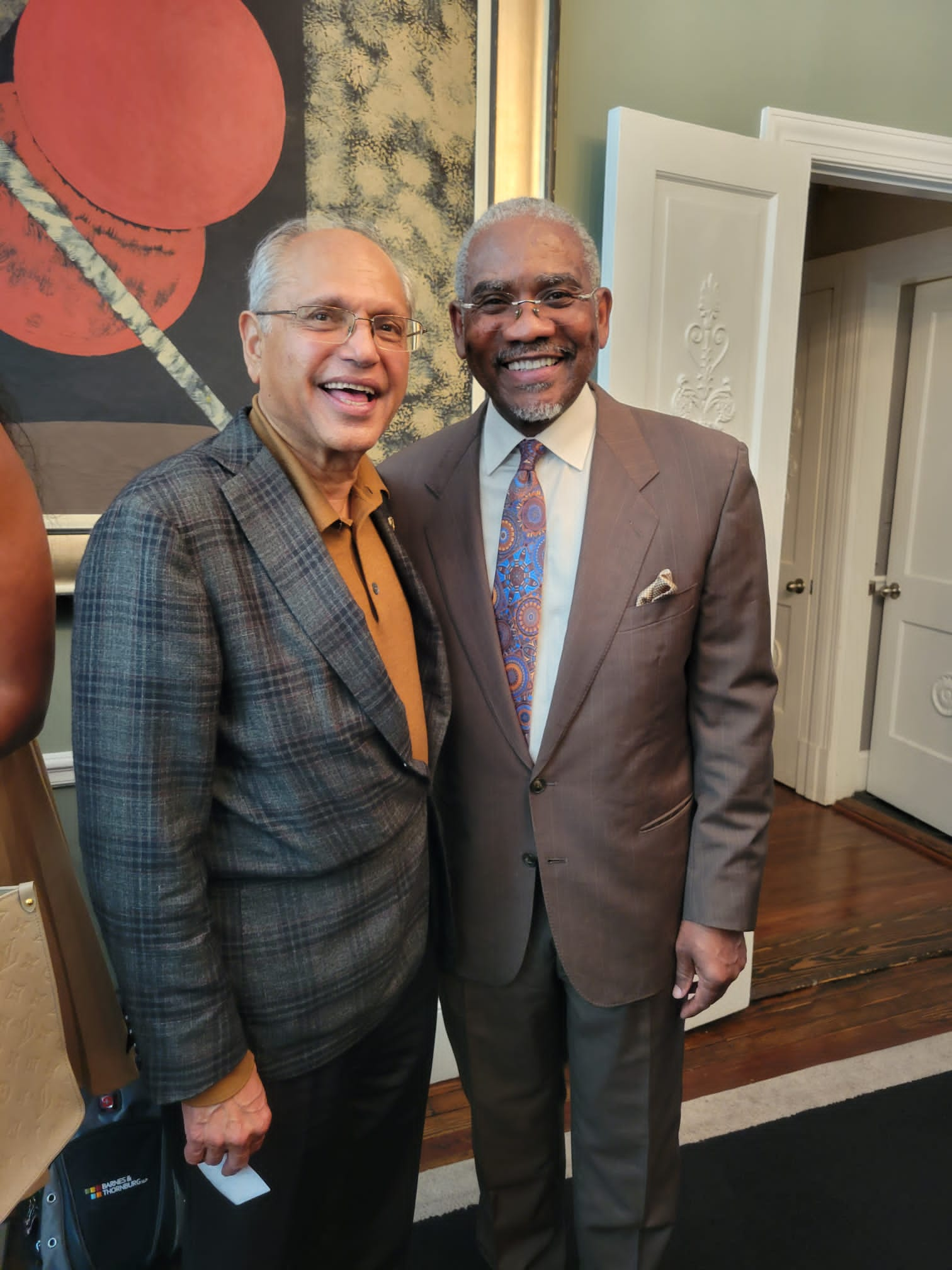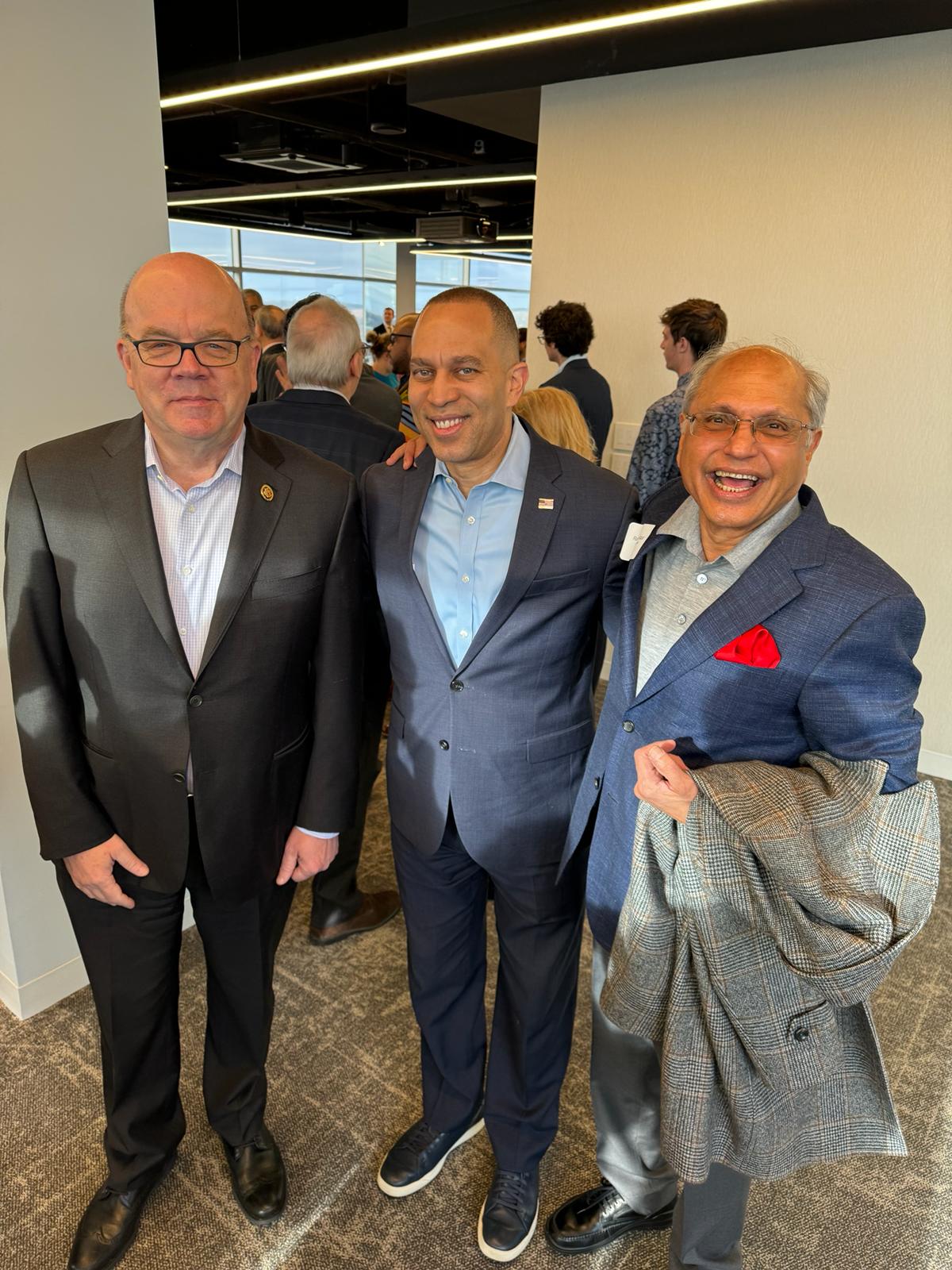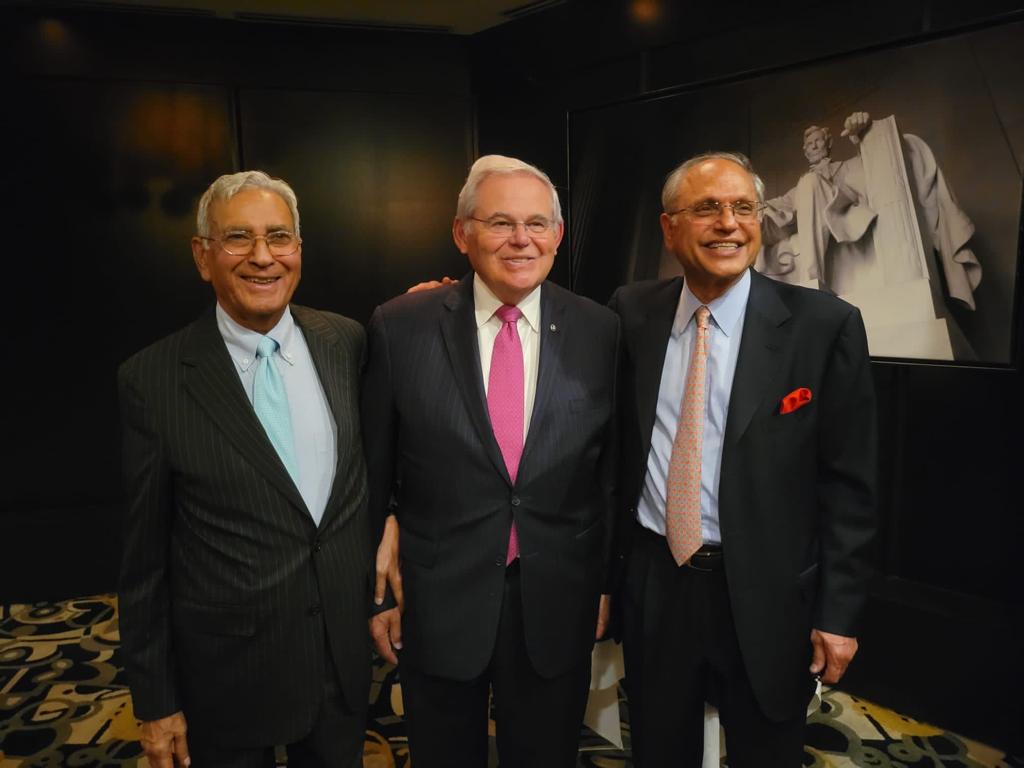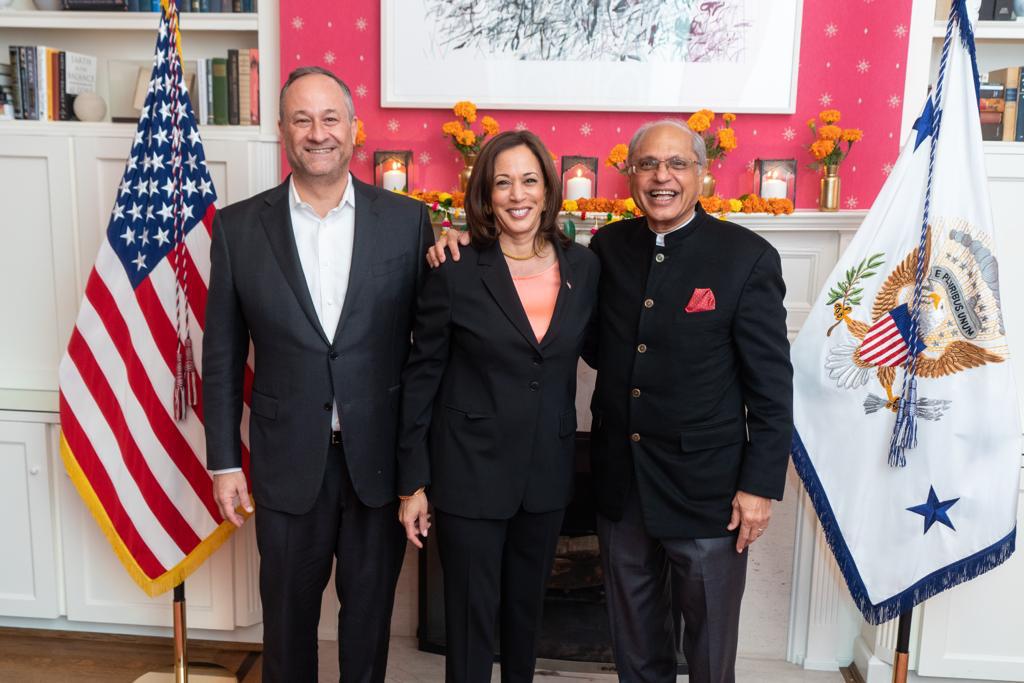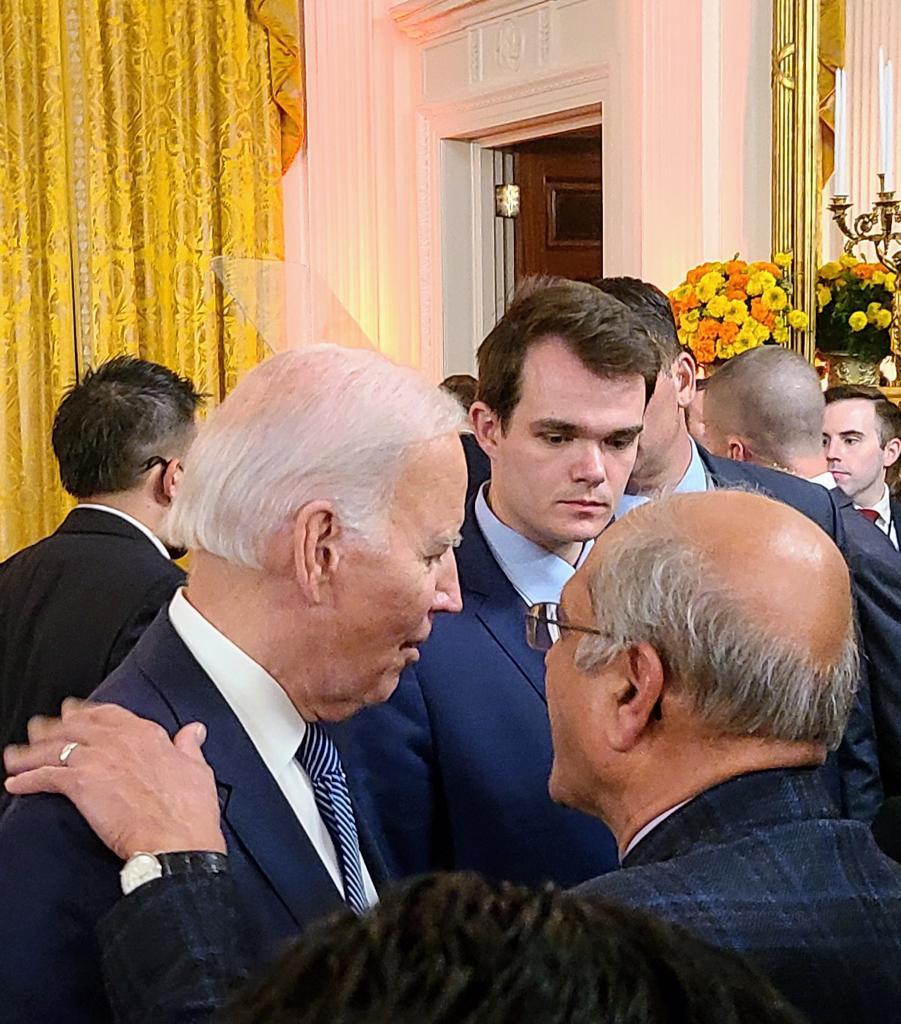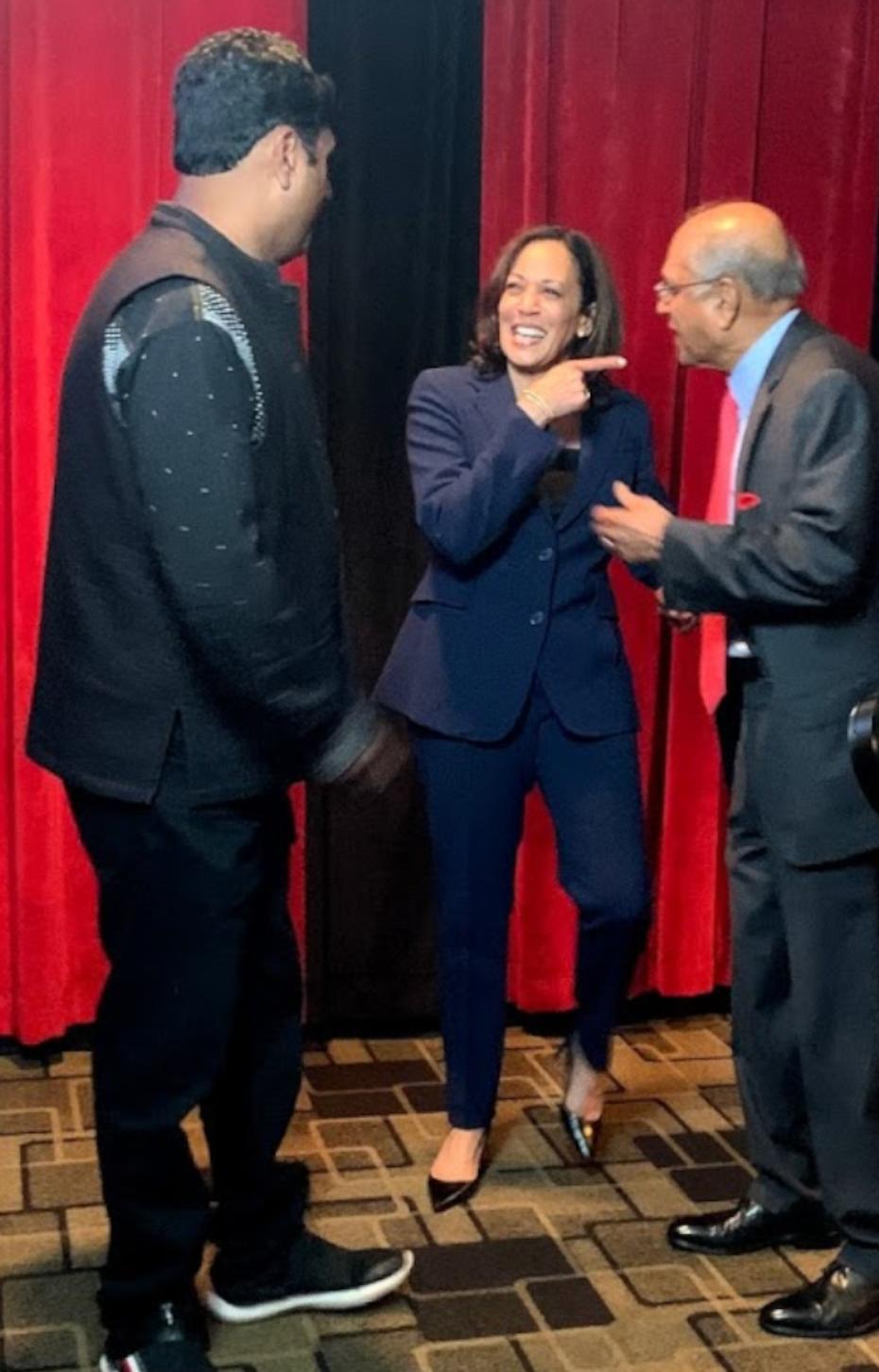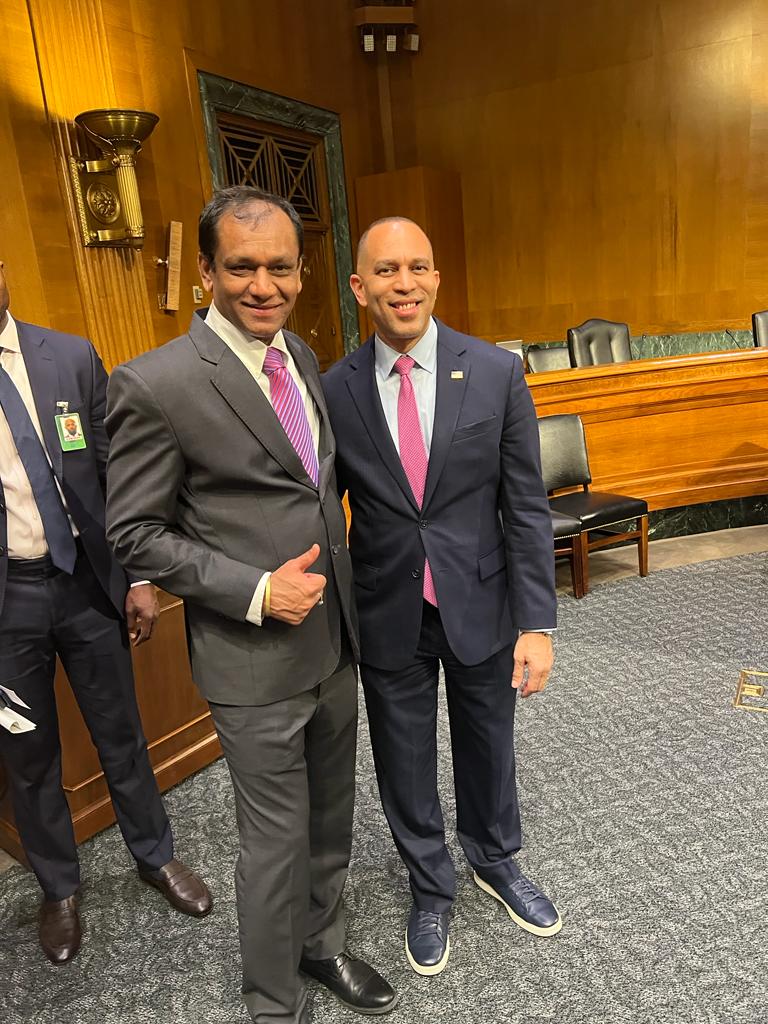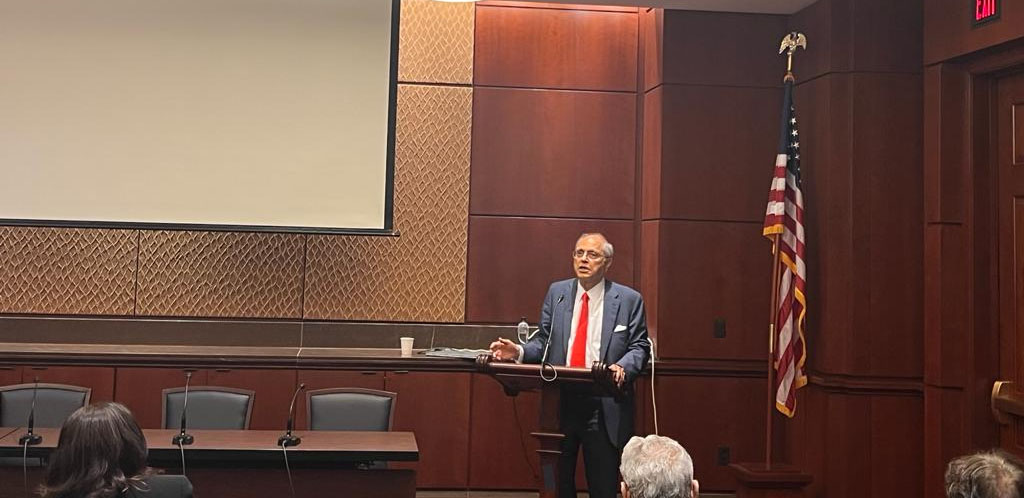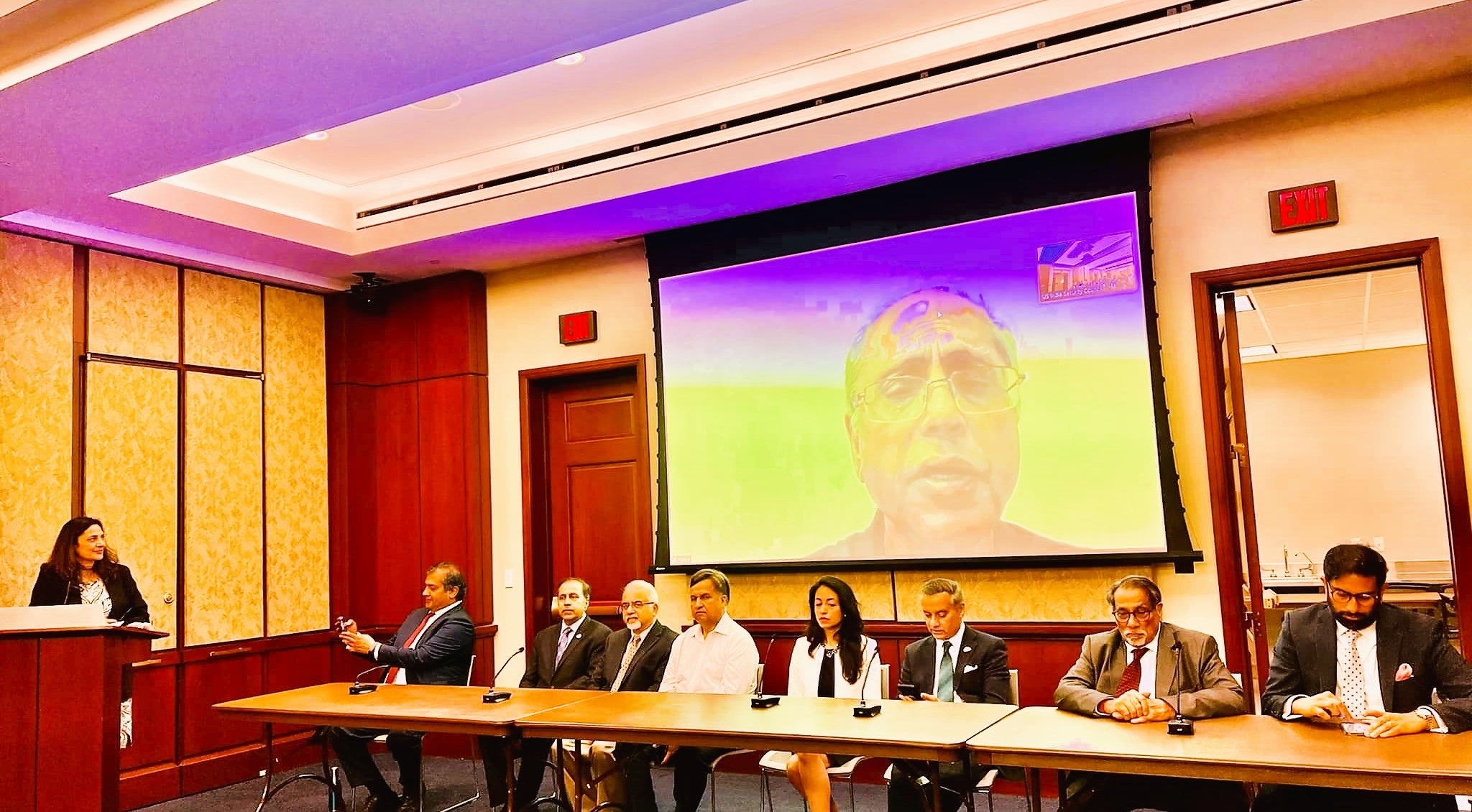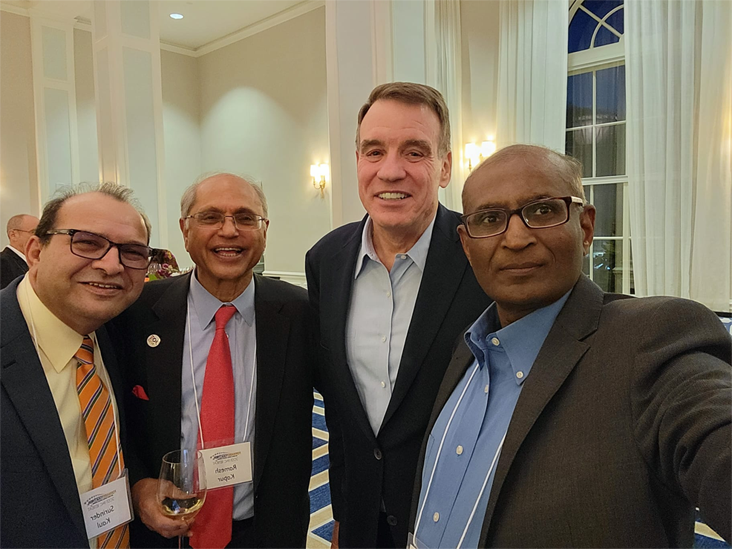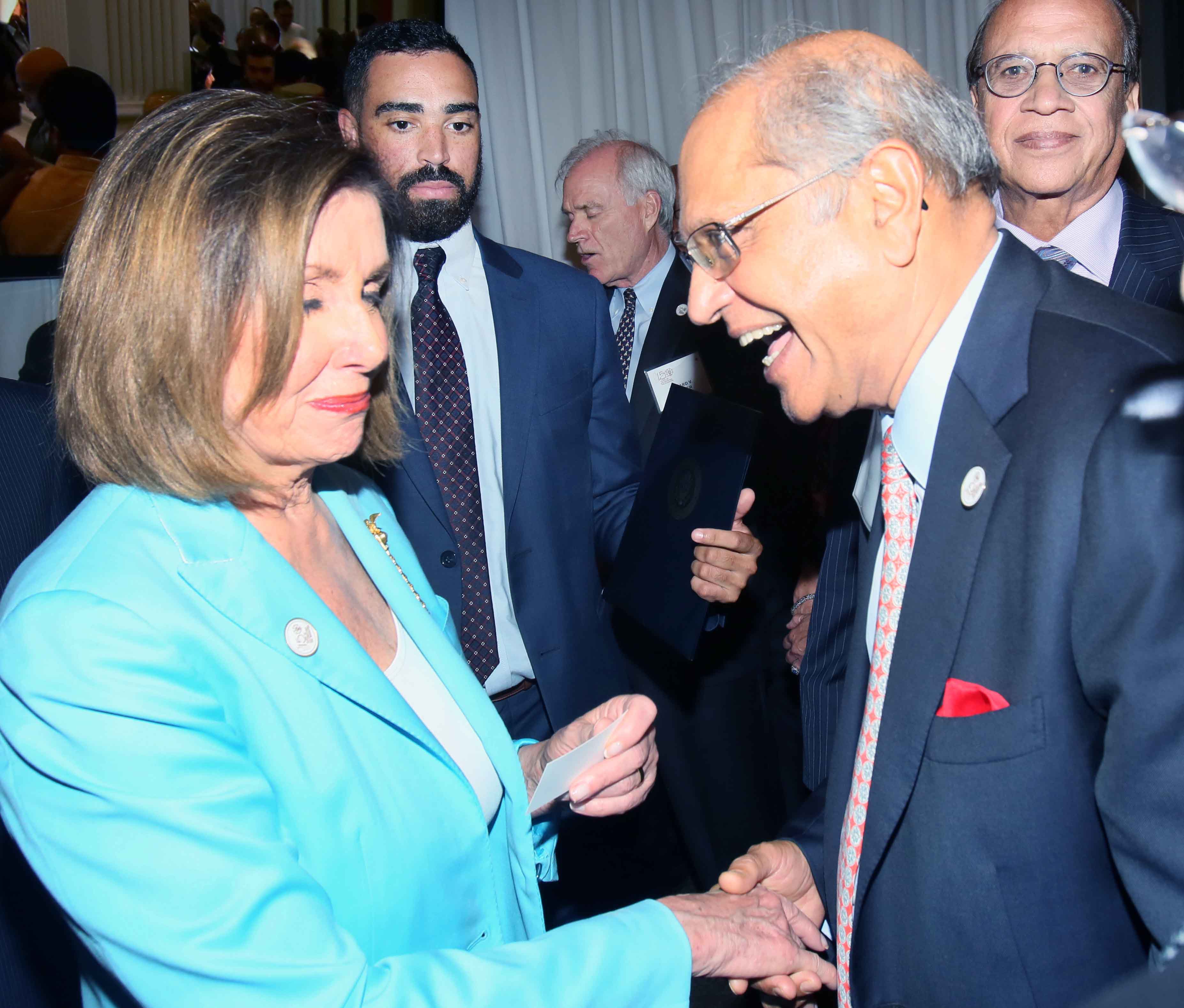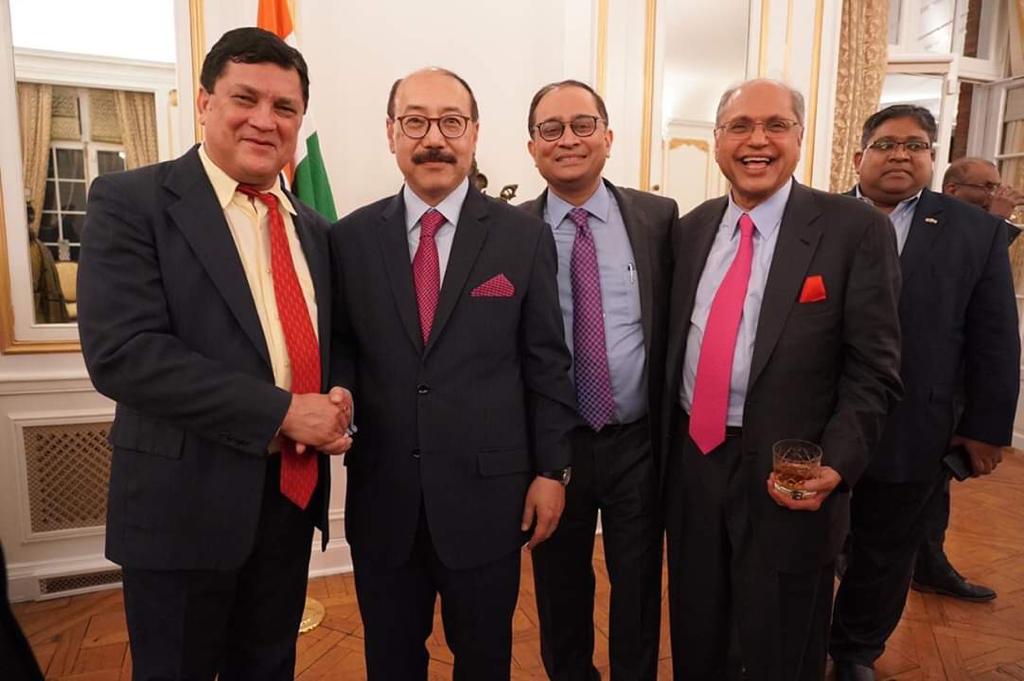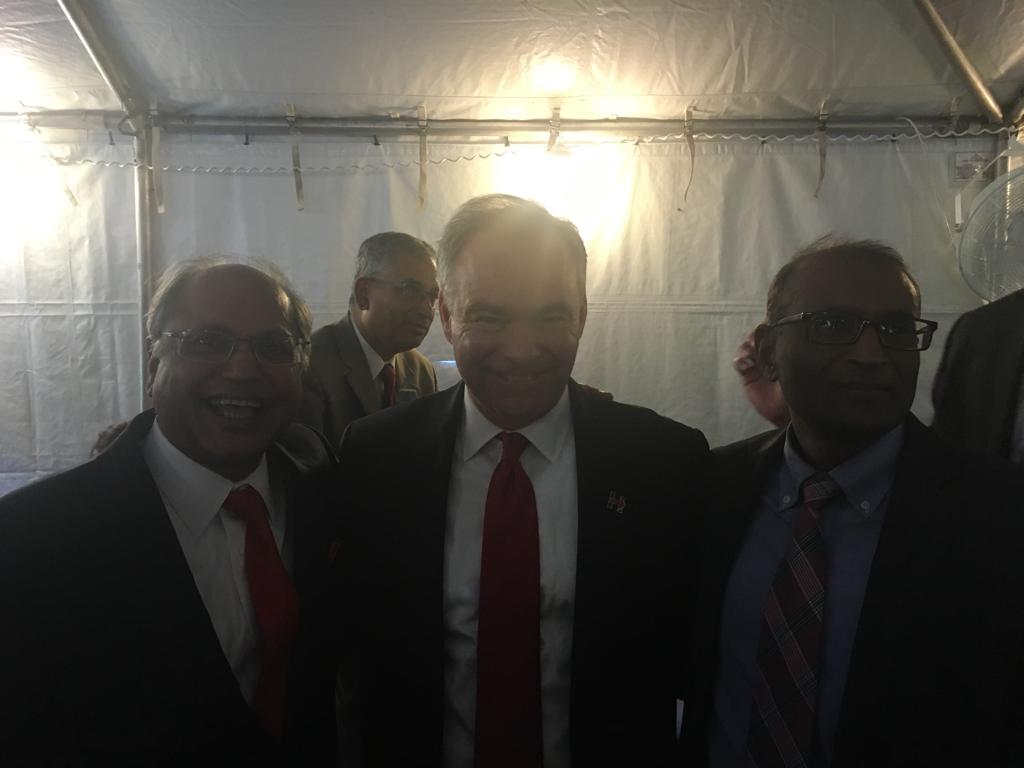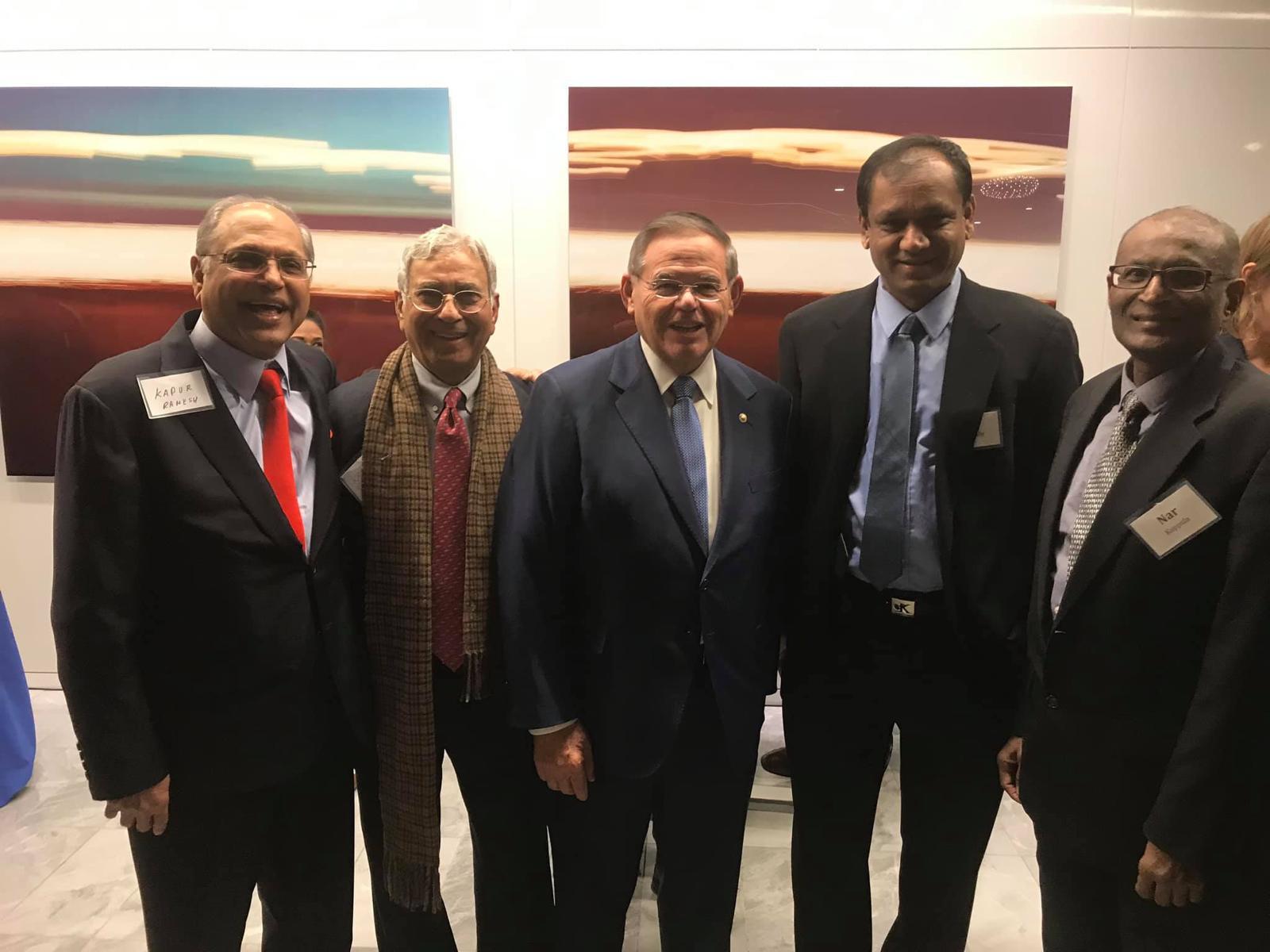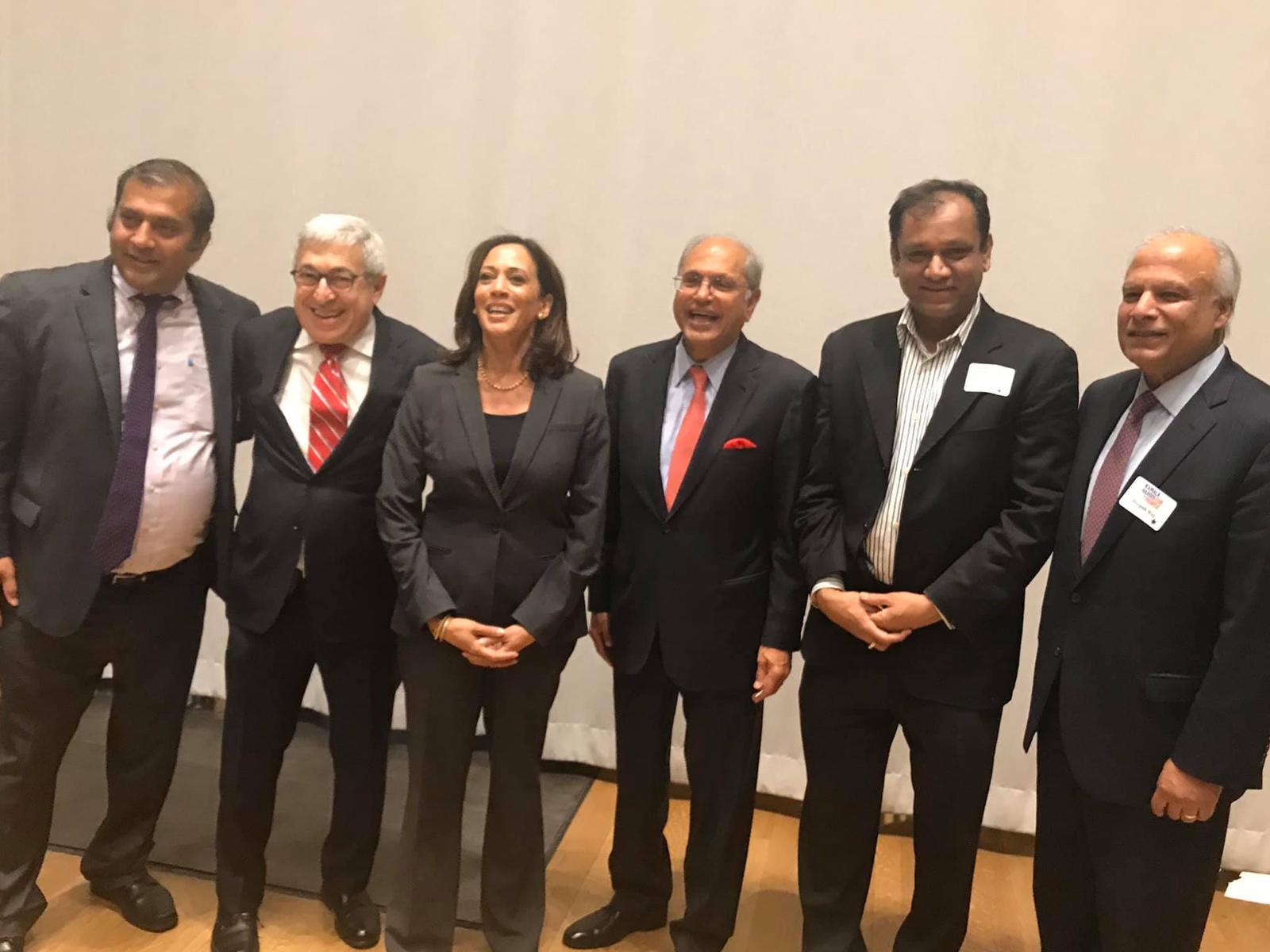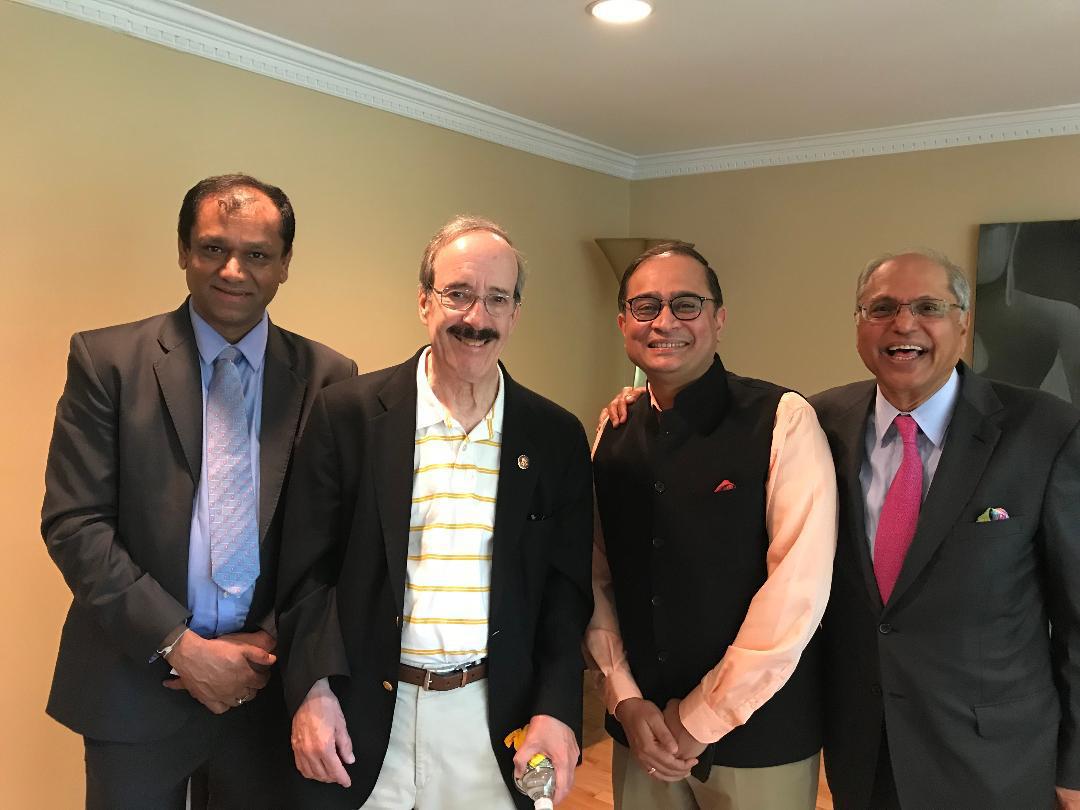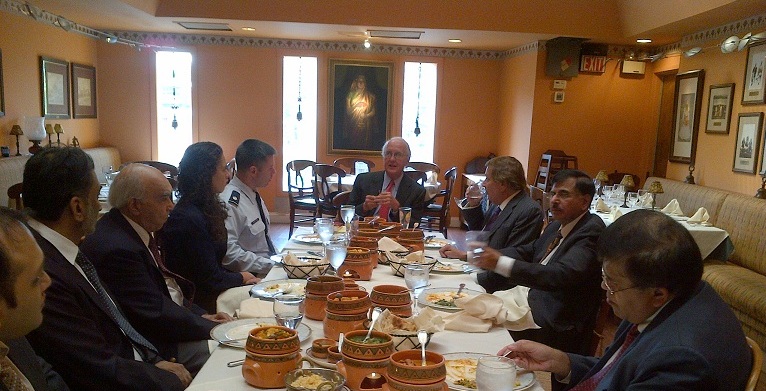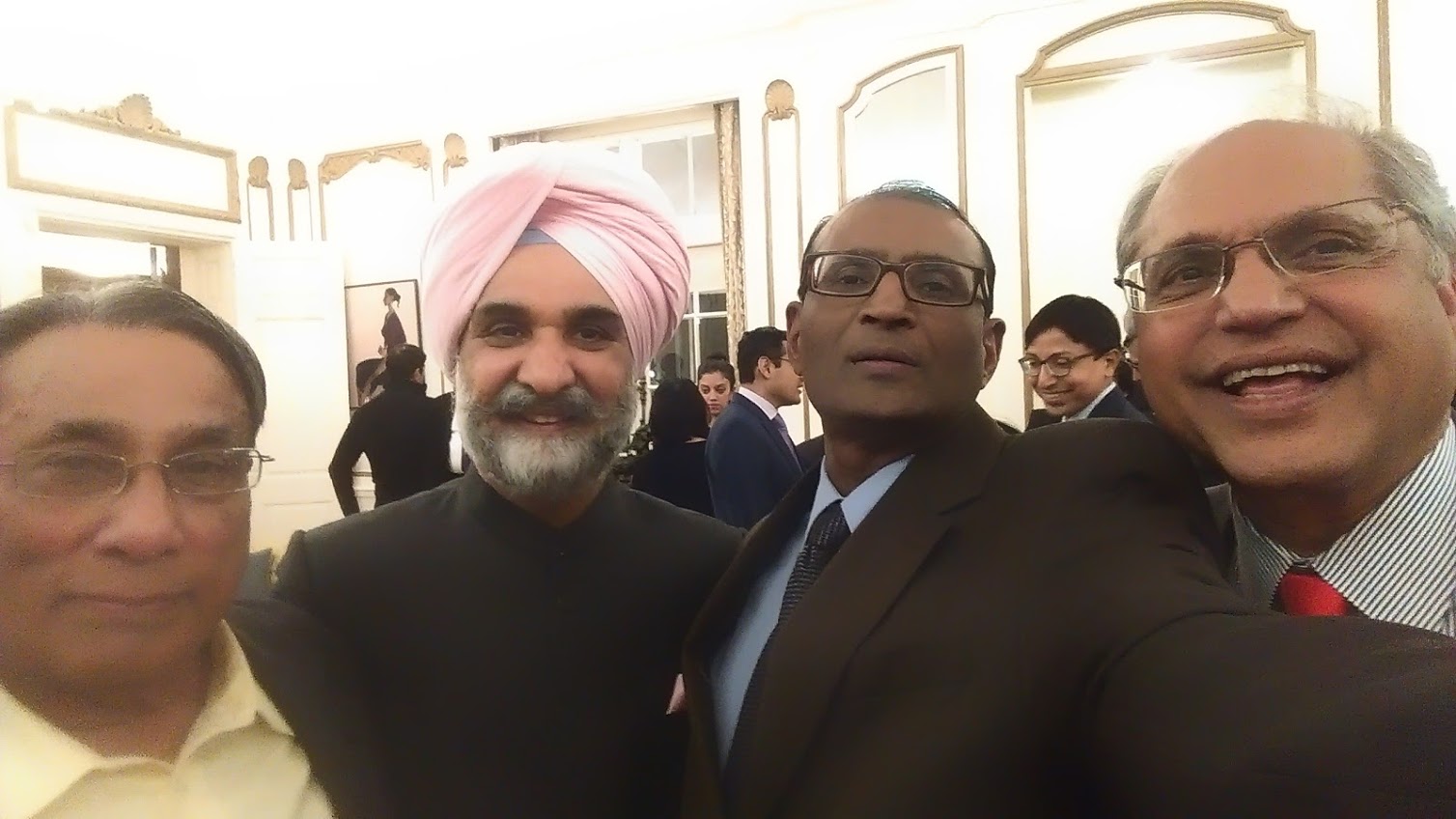/ The National Defense Authorization Act 2017
The National Defense Authorization Act 2017(NDAA 2017) was signed by President Obama on December 23, 2017. and is a significant milestone in the US - India defense relations.
The summary of the Act states that the Secretaries of Defense and State should jointly work to:
- Recognize India's status as a primary defense partner of the United States
- Designate a senior individual within the Administration to reinforce the Framework and help resolve outstanding issues
- Approve and facilitate technology transfer
- Strengthen the effectiveness of the Defense Trade Technology and the India Rapid Reaction Cell
- Jointly develop security measures; streamline defense sales and exports to India
- Encourage government and commercial military transactions; support the alignment of export control and procurement regimes
- Enhance defense and security cooperation
The Act also states that the Secretary of Defense should strengthen military-to-military engagement between the US and India, including soliciting and recognizing efforts by India that would allow the US to treat India as a major defense partner.
NDAA requires that the Secretaries of Defense and State assess India's capabilities to act as a partner with the US, and requires the President to ensure that the assessment is used both to inform the review of defense export requests and to inform any regulatory and policy adjustments that may be appropriate.
The role of USISC
It took USISCouncil more than two years of diligent research, hard work and expenses to accomplish this endeavor which is financed by Indian Americans. USISCouncil Board Members met in person India's Defense Minister Manohar Parrikar, next the India's National Security Advisor Mr. Ajit Doval, and finally with India's Prime Minister Modi. We received their input and tacit approval that they liked our idea of improving and enhancing US-India Defense relationship. Even though the bureaucracies of India and USA were skeptical, we initiated our campaign in full fledge. We hired Washington's most powerful lobbyists. Mr. Thomas McCarthy of Akin Gump researched and drafted the first document that has become the foundation of the language and now part of the law in the National Defense Authorization Act, (NDAA) 2017.
Next, with the help of K&L Gates we have approached every Congressman and Senator and/or their senior staff members of US Armed Services and Foreign Relations Committees and presented National Security and Trade interests of the United States and convinced them of the importance and benefits of enhancing US-India Defense and Trade relationship.
In essence, these leaders believed in our idea and pushed us to continue:
1. Senate Majority Leader Mitch McConnell
2. Senate Minority Leader Harry Reid
3. Sen. John McCain, Chairman, Senate Armed Services Committee
4. Senator Jack Reed, Ranking Member, Armed Services Committee
5. Congressman Mac Thornberry, Chairman, House Armed Services Committee
6. Congressman Adam Smith, Ranking Member, House Armed Services
Committee
7. Congressman Ed Royce, Chairman, House Foreign Affairs Committee
Senator McCain strongly believed in our ideas and the importance of elevated
Defense partnership between USA and India. He took it upon himself to
become the leader and pushed the bill forward and he laid out a plan how he
wanted to achieve and he actually did accomplish what he promised.
Our many thanks to Sen. John McCain. We all need to thank him personally for his successful leadership. We enclose here, for your complete understanding, 1) the actual bill just passed in the Conference Committee,
Impact
This Act accomplishes some important goals related to strengthening the US-India strategic relationship.
First, it advances the Framework and sets forth specific follow-up measures for the US to take.
Second, it gives the weight of law (and of the US Congress) to the Framework's key elements. In the process, it also helps ensure that the pro-partnership momentum continues beyond the current presidency and into the new one next year.
Third, it creates an opportunity to streamline US export control requirements related to India.
The next critical step needed will be for India and the US to work to remove the impediments of the US Export Control Laws, to streamline the US-India strategic relationship beyond what the NDAA's language permits.
About USISC
US - India Security Council, Inc. (USISC) is a registered 501(c)(4) non-profit organization based in Wa.....Read More
OUR WORK
1...
US - India Civil Nuclear Deal
On July 18, 2005, the historic US - India Civil Nuclear Agreement was signed by the heads of bot...
Communication and Coordination with the US Administration and Congress
USISC realizes the importance of working closely with the US Administration, the...
Encouraging closer ties between the USA and India, especially in Defense, Security and Trade
USISC has been working closely for the past several years identifying synergistic opportunities for ...
EVENTS AT USISC
- US-India Security Relations in the New Administration with Special Emphasis on the Future of the US
- Maritime Security Dynamics in Indian Ocean Region
- The US Role in Indigenization of the Indian Defense Industry
- The US Role in Nuclear Stability in South Asia
- US-India Defense Relations: A path for the Future
- The Role of South Asia in Counter Terrorism
- Prospects of Defense Technology Cooperation between India and the United States.
- US-India Shared Strategic Perspectives
- US Security Relations Vis-a-Vis China and Japan
- US & India's Mutual Defense and Security Interests
- Challenges Facing UC & India's Defense Ties
- 9/11 - Ten Year Later, Impact on US-India Strategic Ties
- Hurdles Facing US-India Military to Military Ties
- Soft Power and India's Equipoise Imperative in Grand Strategy
- Strategic Aspects of US India Economic Engagement
- US, Indian Interests in the Israeli-Palestinian Peace Process
- US - India Strategic Ties: 2014 - What is Ahead
- Defense Policy and Indigenization of the Indian Armed Forces Under the Modi Government
- The Modi Visit: First Impressions from a Strategic Perspective
- Talk Synopsis123
- The Dynamic and Evolving Bilateral Relationship between India and China: A Diagnosis and Prognosis
- Untapped Opportunities in the India-U.S Strategic Partnership
- US India Security Council protest meeting on Capital Hill with Raja Krishnamoorthy (July 2022)
- Mr.
USISC IN PICTURES
INSIGHTS
1...
New Framework for US-India Defense Relationship
...
Framework for US-India Defense Relationship
...
All you need to know about NDAA 2017
Section 1292 of the National Defence Authorisation Act (NDAA) 2017 emphasizes on enhancing the defen...
A historic perspective of US - India relations
India and the United States of America have had a bitter-sweet relationship ever since India's indep...
White House Joint Statement
...
US - India Joint-Statement on the Trade Policy Forum
...
Prime Minister Narendra Modi of India Delivers Address to a Joint Meeting of Congress
...
State Department - Joint Statement
...
USISC IN THE NEWS
- Mr. | Jan 01, 1967 : 1
- USISC President Ramesh Kapur hosts California Gov. Newsom at his home | Jul 07, 2024 :
- Celebrating Entrepreneurial Spirit and Democratic Values at the Campaign for Democracy Reception | Jul 08, 2024 : Winchester, MA - July 8th, 2024: On a bright summer evening, the US India Security Counci
- Did Biden & Modi Reset Indo-US ties? • Ramesh Kapur Satish Jha • Amb Pradeep K | Jul 18, 2023 :
- Democratic Party Activist Ramesh Kapur on Upcoming Mid-Term Elections, Indian American Candidates an | Sep 16, 2022 :
- | Dec 15, 2021 :
- China and India struggle to comprehend each other’s international ambitions. | Mar 15, 2021 : The misperceptions that follow lead to a lack of trust, border skirmishes, and potentially worse.
- Ramesh V Kapur in conversation with nrinew | Jan 27, 2021 : Shares his journey of 2020 and talks about 2021 expectations.
- NRI NEWS 24/7 | Jul 22, 2020 : NEW YORK, USA: Mark Warner Video Conference on National Security With The US India Security council.
- US will work with India, Japan and S Korea to tackle threat from China: Senator Warner -- By Times | Jul 23, 2020 : US will work with India, Japan and S Korea to tackle threat from China: Senator Warner
- India New England News | Jul 22, 2020 : Sen. Mark Warner Says US Will Work With Countries Like India, Japan, South Korea to Tackle the Threa
- Latest Updates On Jammu & Kashmir | Jan 06, 2020 : Enclosed find an updated note on the situation in Jammu & Kashmir for your information
- Sunanda Vashisht Testifies at US Congressional Hearing | | Nov 19, 2019 : US India Security Council helps Kashmiri Hindus voice
- India New England News | Jan 02, 2017 : US - India Security Council Claims Victory, Says for the Fi
- The Economic Times | Dec 21, 2016 :
- Press Trust of India | Dec 15, 2016 :
- India Abroad | Jan 19, 2007 : Interview with Ramesh Kapur
- | Jan 01, 2007 :
- | Nov 21, 2006 :
- | Jul 31, 2006 :

